Iratus: Lord of the Dead has a beautiful story. The young studio Unfrozen launched the development of an ideological follower of Darkest Dungeon. The project successfully reached early access, acquired a demanding community and received a foreign publisher. The whole story was told to us by the producer of the project Denis Fedorov.
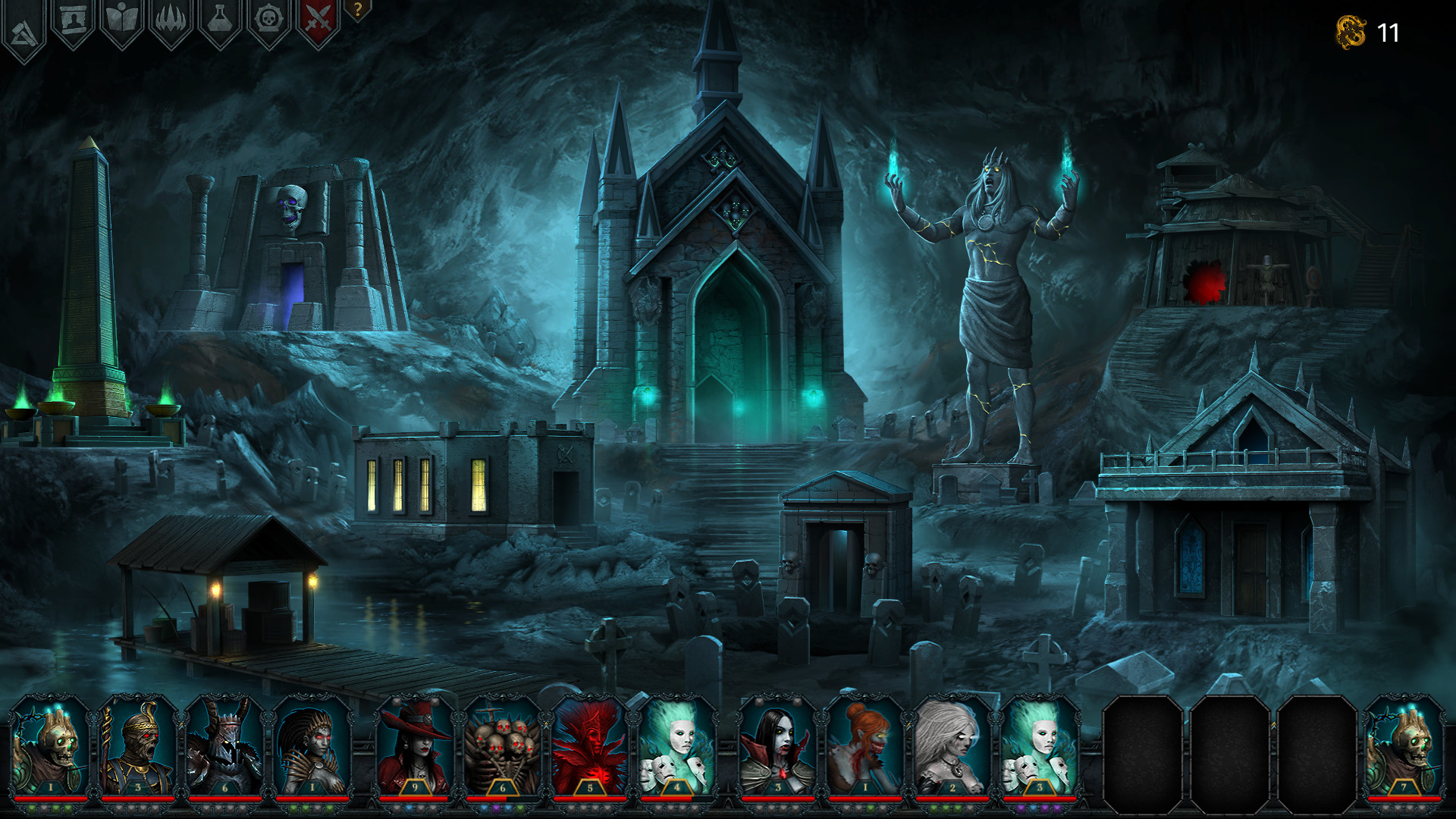
Alexander Semenov, Senior Editor App2Top.ru Questioner: Let‘s start with the traditional question about the team. What is Unfrozen Studio like today?
Denis Fedorov, CEO of Unfrozen: The answer, probably, can also be quite traditional: this is a community of like—minded people who are driven by a common goal – the creation of interesting games.
Seriously, the main staff is located in the St. Petersburg office: the entire technical team and QA, art director, animator, editor-in-chief and community manager work here. The manual is also here. In addition, several other amazing people from other cities and countries work with us, for example, our screenwriter lives in Riga.
Iratus: Lord of The Dead today is one of the ideological heirs of Darkest Dungeon. How did you come to the idea that it is necessary to take on it, and not, for example, for something simpler?
Fedorov: We were not faced with the task of choosing what was simpler. For a whole set of factors, our eyes lit up towards the idea of “Darkest Dungeon on the contrary”, so we began to implement it.
What are the factors?
Fedorov: First of all, it’s very interesting to play as a bad guy. The audience has a request to “see the world through the eyes of a villain” today. Just look at the number of Hollywood films that make the usual antagonists the central characters of blockbusters.
Secondly, it was really interesting to play Darkest Dungeon. The guys from Red Hook were able to offer a new genre.
And, finally, it’s very nice to feel like a kind of King of the Night from the TV version of “Game of Thrones” — to intimidate opponents, turn defeated enemies into allies, and so on.
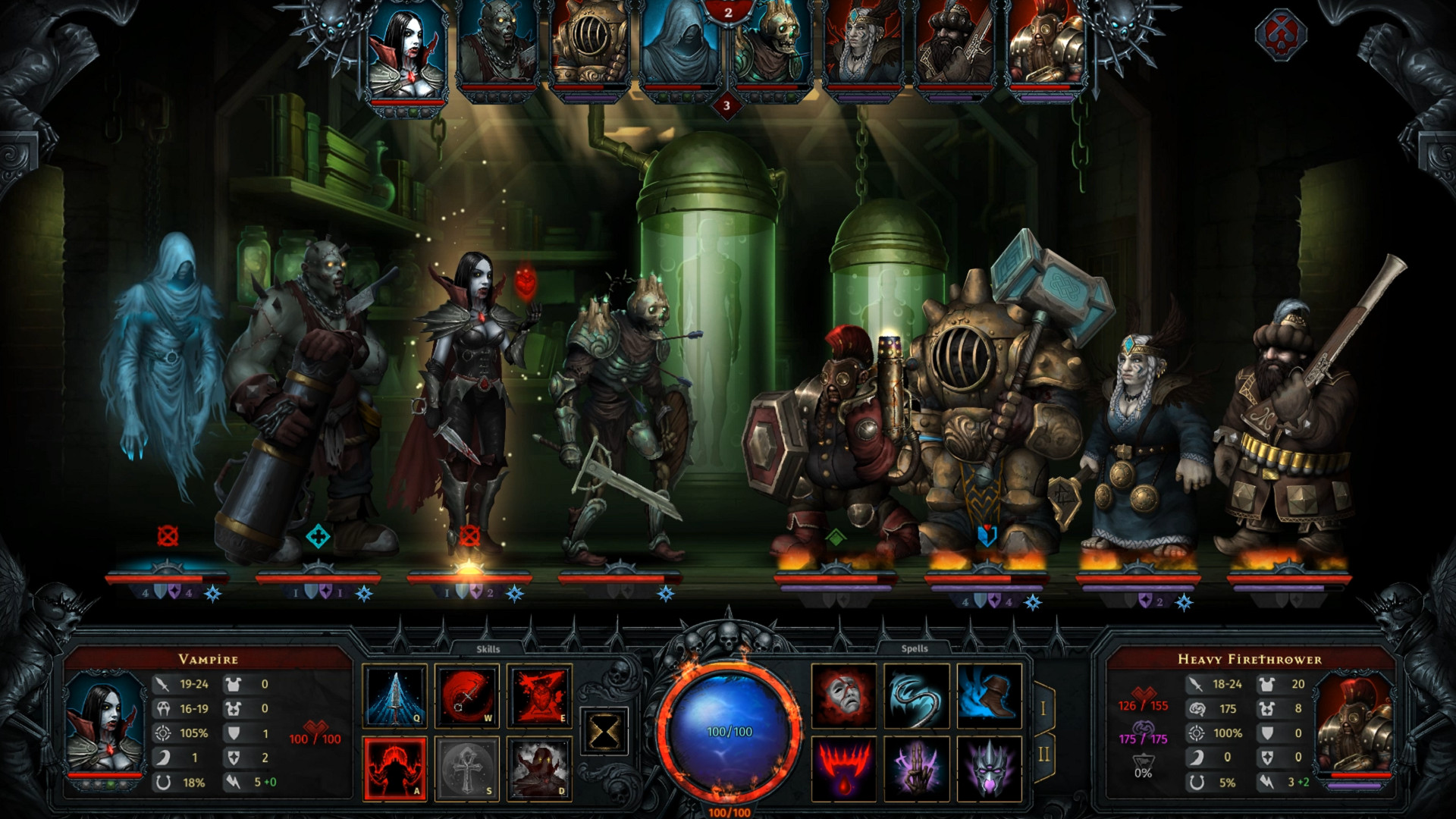
What unique features and innovations did you have in mind from the very beginning?
Fedorov: From the point of view of mechanics, I wanted to give the players a clear goal — where and why we are moving. Perhaps this is just what Darkest Dungeon lacked.
Among other ideas is the direct participation of the main character in the gameplay: this includes the use of talents in combat, and the use of artifacts that affect performance. We also really wanted to give the opportunity to strategically approach the layout of the army itself. The player decides for himself which minions and in what quantity to create for what purposes. This is a chess game where you determine the set of pieces on your half of the board yourself.
Were there any things that had to be abandoned immediately at the very first stages of development?
Fedorov: We immediately decided that we would develop our own graphic style. Stylistically, the game relies not on DD (that would be silly enough), but on the Disciples series. The graphic “spirit” of the game and stylized graphics are largely inspired by this particular franchise, especially the second part.
What difficulties or non-standard situations were you not ready for from the point of view of production?
Fedorov: First of all — to a high turnover of personnel, especially at the first stage of development. It is very difficult to motivate employees if you are not a cool studio with big budgets, but a small startup. I am very glad that in the end we managed to assemble an excellent team of professionals, real workers, really passionate about the development process.
A lot of things had to be redone based on the feedback of players during beta testing. Unfortunately, this led to numerous postponements of the release date of the game, which also sometimes negatively affected the morale of the team.
Of course, there were other “surprises”, but there were no things that made it necessary to turn all the work 180 degrees or more.
You undertook to do Iratus: Lord of The Dead on Unity. What other options were there and why did they stop at it?
Fedorov: Unity was quite an obvious solution. There are quite a lot of specialists on the market with experience working on this engine.
Of course, we also analyzed alternatives. Unity has bribed with the ease of multiplatform work. We have plans not only for the PC version, but also for Mac, Linux and consoles.
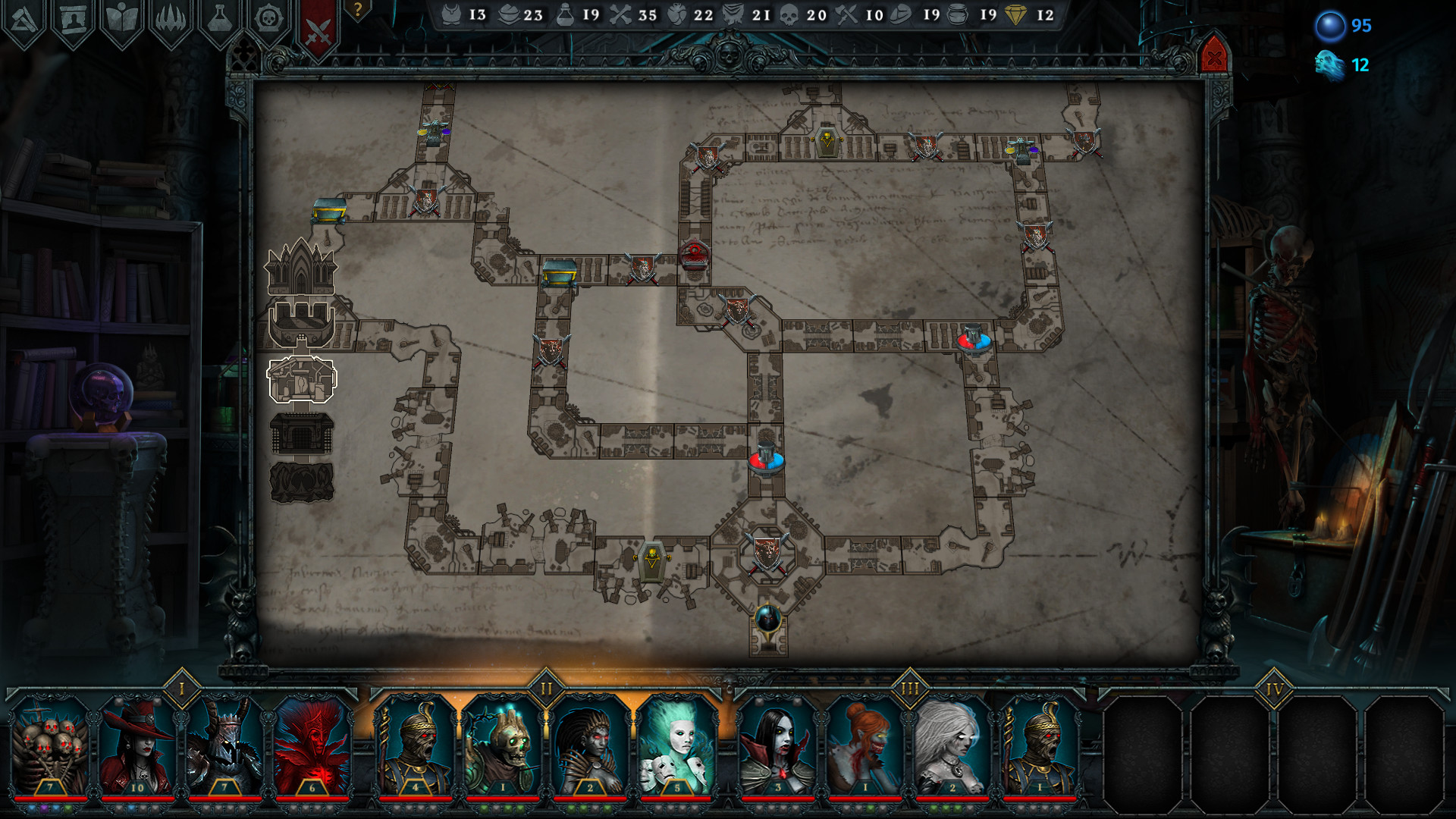
Were there any pitfalls when working with Unity? For example, did you have to create custom tools?
Fedorov: Our programmers have written several utilities for internal use. For example, utilities for prompt loading of texts and translations into the game, for balance adjustment.
You went public in the winter-spring of 2018. How long was the development going on before that?
Fedorov: The pre-production of the game started back in 2016, mainly on the naked enthusiasm of the founders of the studio. The first, very simple prototype was ready at the beginning of 2017, then the game looked completely different. The development itself in the mode of full-fledged office work started on June 1, 2017, this is the conditional birthday of our Iratus.
What was the stage for you when you realized that it was possible and necessary to start marketing activity?
Fedorov: When we launched the studio and the project, we made both a business plan and a media plan. These are standard procedures that are specific to game dev only for some individual internal parameters.
Marketing activity and its development is a common part of such planning, which is tied to:
- to the current state of the market and the information field;
- to the degree of readiness and reliability of the product;
- to the timeline of the project implementation.
There was no moment when it dawned on us that it was time. There was systematic work on the implementation of the strategy. Actually, this work continues now.
We announced the game early enough, but, unfortunately, there were not enough resources for its full-fledged promotion at the initial stage: both monetary and human. From the very beginning, it was decided that we would promote the game from the very first screenshots. Unfortunately, not all the ideas were implemented, but in general, the strategy worked quite well.
We consider it a great success that almost from the first alpha we started actively working with streamers, thanks to this we received excellent feedback. Many of the suggestions made by the players during this period were taken into work and are now present in the game.
Can you tell us a little about how you are promoting, how many people are responsible for it?
Fedorov: In our team, the editor-in-chief and the community manager are responsible for this. A PR specialist in Russian-speaking markets and an American PR specialist in English-speaking markets also work with us. The general supervision of marketing activities is carried out by the head of the studio.
In addition, we must not forget about the huge contribution of our publishers, Daedalic Entertainment, who also made efforts to promote the game in different markets and venues.
We try to speak the same language with our players, be present where they are present, listen to their responses.
A separate layer of work is interaction with opinion leaders, streamers. Here the task was mainly to just tell them about the game before going into early access, to show them: look what a thing we did.
Participation in events (E3, PAX) plays an essential role. Although, strictly speaking, we are disappointed with participation in offline events. I probably wouldn’t recommend it to domestic indie studios. First of all, it is too expensive, and secondly, it is more of an image event than a full-fledged product promotion channel.
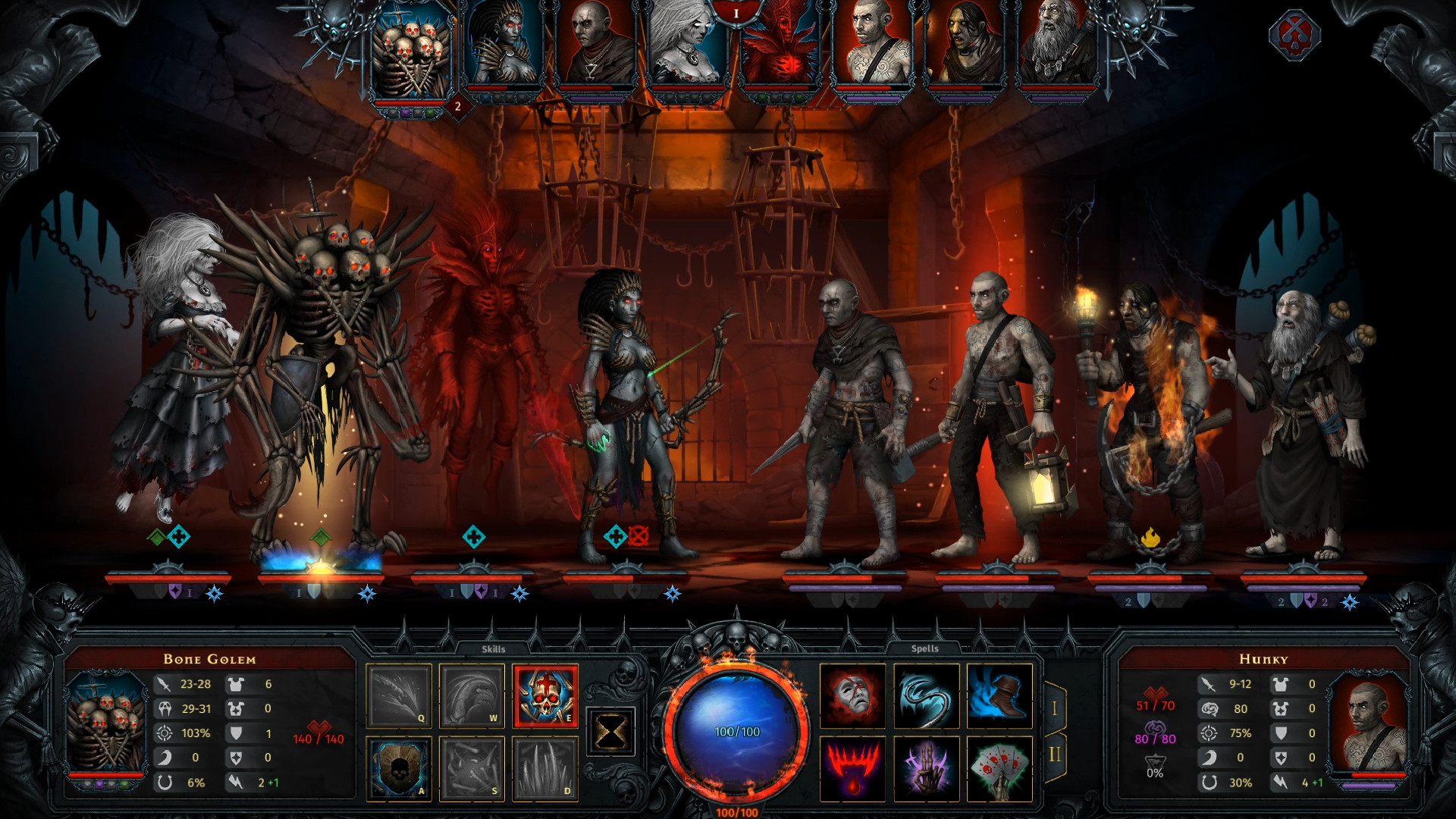
Almost immediately after the announcement of the game, you started a Kickstarter campaign (in May 2018). Was she originally in the plans?
Fedorov: Yes, we were originally going to hold it.
What was the goal of the Kickstarter campaign for you?
Fedorov: Actually, like any other crowdfunding campaign — to get the support of a young project. In addition, we hoped to use the campaign primarily as a PR occasion and get an opportunity to better introduce the community to our game.
You have assigned a very small amount to collect. Why?
Fedorov: Because the support I am talking about is not only financial support, but also an understanding of how much interest the idea itself arouses, how actively people respond to it. Thanks to Kickstarter, we not only received funds for work, but also confirmation that we have taken on the right thing.
From the very beginning, it was obvious that we could not raise a lot of money: it is now almost impossible for a young nouname studio. Therefore, the amount was small, the image effect was much more important.
Kickstarter is now a bad platform for crowdfunding indie games. Board games and everything related to physical “material” revards rule there. The budget for marketing a Kickstarter campaign may well be comparable to the amount of money raised. In other words, I would recommend thinking seriously if you are going to Kickstarter — you need to have a good strategy and weigh the pros and cons very thoughtfully before starting.
By the way, can you share the budget of the game itself?
Fedorov: No, but there are no exorbitantly cosmic sums there. By European and American standards, we made the game quite inexpensive.
Initially, you stated that you wanted to release the game in early access almost in September 2018. She appeared almost a year later (in July 2019). What went wrong?
Fedorov: Everything went like this. It just became clear that in early access we want to release a game with more content, as well as interesting features, than we thought at first. So that the players get a product closer to the final version of the mechanics and functions, and not something raw.
Of great importance was the implementation of new game features that players literally demanded (for example, pumping minions).
Well, and then there was another postponement when our cooperation with Daedalic Entertainment entered an active phase. Because of this, the timeline, marketing was adjusted, new localization languages were added, and so on.
In other words, it was not planning errors or some kind of thunderbolt that led to the transfer, but a revision of the concept of what we want from early access.
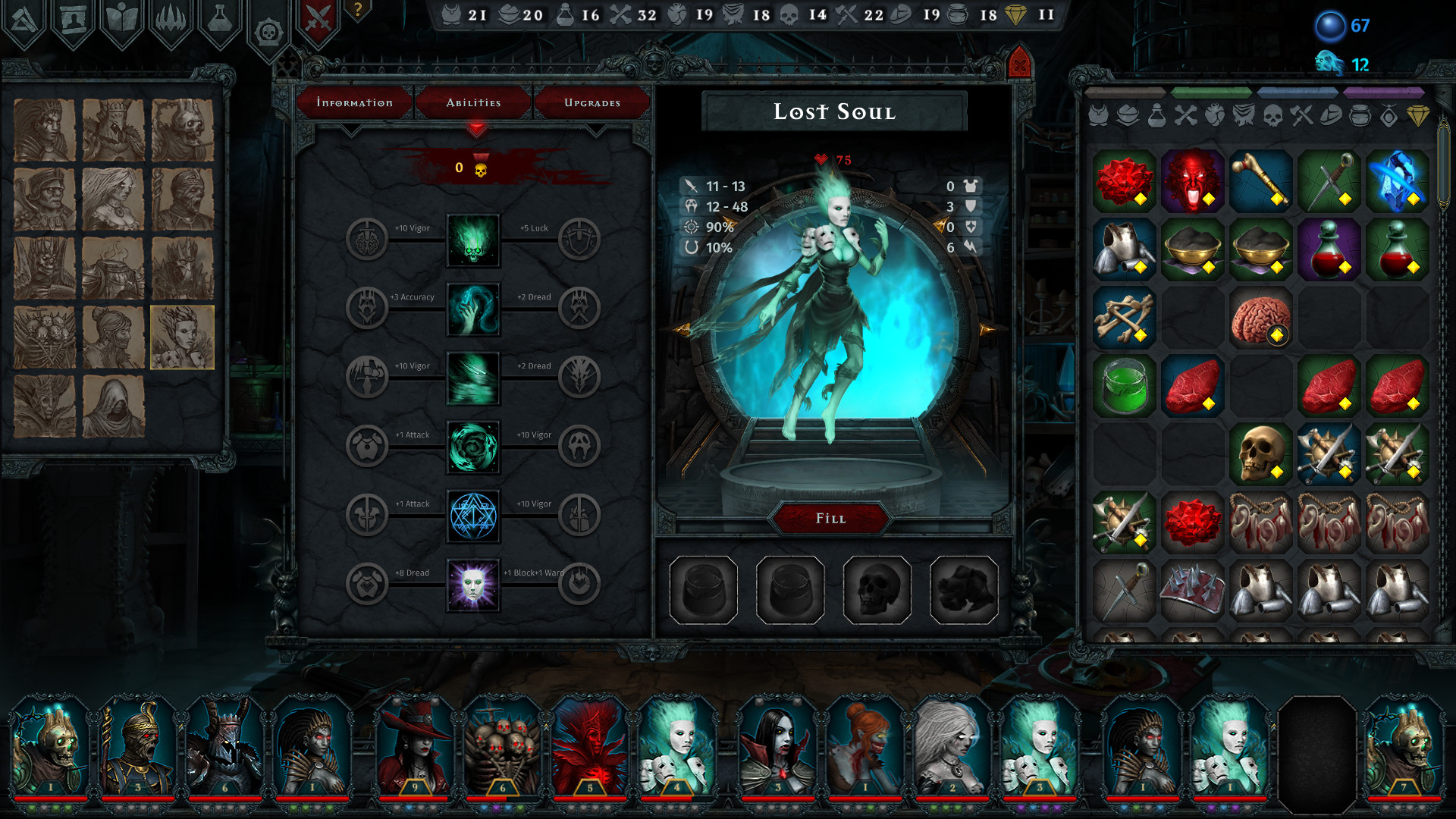
How did the audience react to the postponement?
Fedorov: There are always those who say that everything is gone, that they knew that Russian developers, well, and further down the list. But there was no fear that we would be killed for the transfers. After all, we have always tried to keep our audience informed of what is happening in great detail and openly. I think those who really followed the project had no serious doubts that it would be implemented at any stage. Everyone understood that delays were necessary and they would benefit the project.
The fact that you plan to launch the project with the support of Daedalic became known only in February 2019. Almost a year after the announcement of the game. Were there other plans before that?
Fedorov: Initially, we planned to release the game on our own. However, after the Kickstarter campaign, it became obvious to us that we could not pull the marketing of the project. It became clear that we need good professionals in this business. We started looking for a publisher.
How did you search?
Fedorov: We took a very responsible approach to choosing the publisher of the game. The search for a publisher dragged on for almost six months. Someone came out to us on their own, someone was pitched by us. In general, it was a long and rather exhausting process of weighing various options, various pros and cons.
Why Daedalic Entertainment?
Fedorov: By the time we contacted them, we had several offers from different publishers (including several fairly large ones) from Russia, the USA and Europe, since the game obviously aroused active interest. Iratus: Lord of the Dead wanted to get into the portfolio very, very many.
The management of Daedalic Entertainment was very interested in our game. Their CEO Carsten Fichtelmann and his assistant specially flew to us in St. Petersburg for negotiations. Their arguments were extremely convincing. We realized that we had found a professional partner in their person.
How difficult was it to sign up with him? Were there any demands on his part?
Fedorov: This is not a one-way process. We did not go with an outstretched hand, but had the opportunity to choose among several interesting offers from publishers. Of course, any contract, any agreement implies the existence of requirements on both sides. This is an ordinary business process. In general, there were no special requirements. However, we particularly insisted on freedom in making any key decisions on gameplay. This has become a separate clause of our contract
By the way, is Daedalic Entertainment helping you financially now?
Fedorov: First of all, their help is localization, marketing and QA. We will tactfully keep silent about the financial side.
Half a year has passed since then. How justified was this cooperation, what did it give you?
Fedorov: In general, it was justified. We have expanded our marketing and PR strategies, the number of markets we have entered, and the number of language versions. The publisher actively helps us with localization, as well as QA. We can say that we have quite a fruitful creative union with our German friends.
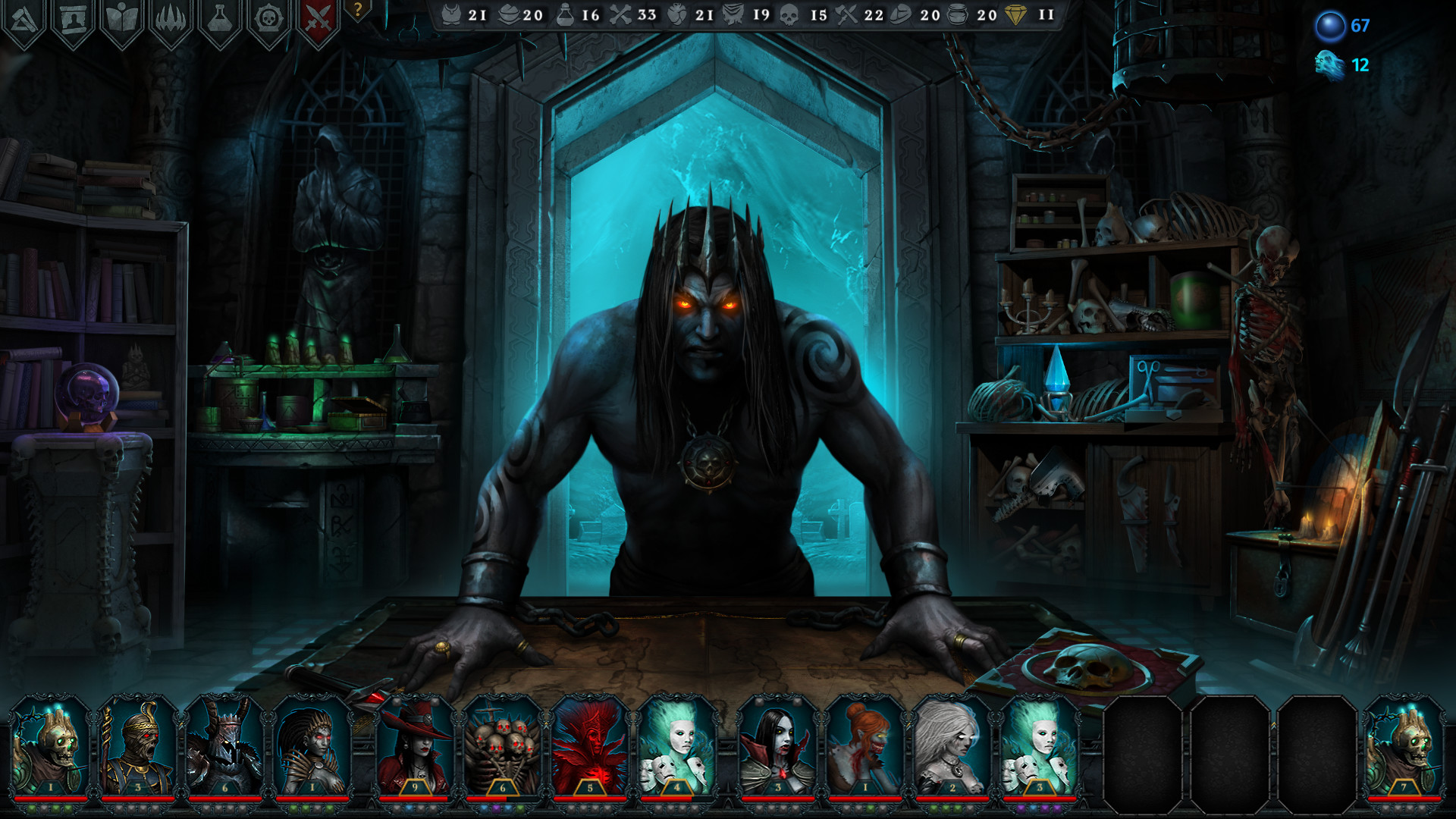
At the end of July, you appeared on Steam as part of early access. Is there anything that surprised you the most, that came as a surprise to you?
Fedorov: If we talk about particulars, then, probably, the number of wishes is on balance. We knew that the players would talk about balance, but on the first day this topic completely blocked the others.
What changes are definitely worth waiting for from the project?
Fedorov: We haven’t washed our hands of early access. On the contrary, there is a feeling that after July 24 we began to work even more intensively.
We have published an early access roadmap, which summarizes information about our plans. We will continue to improve the game in all components: work on balance, improve mechanics, add vital functions, make necessary edits. We have already made some of the changes, then more. And this, and the improvement of strategic capabilities by disclosing more information about enemies, and the refinement of the map, and much more. This is one area of work. The second is working on content. We will add new levels, new maps, a lot of new enemies, several new minions.
So it makes sense to follow the game in real time, we have a lot of interesting ideas in store.
